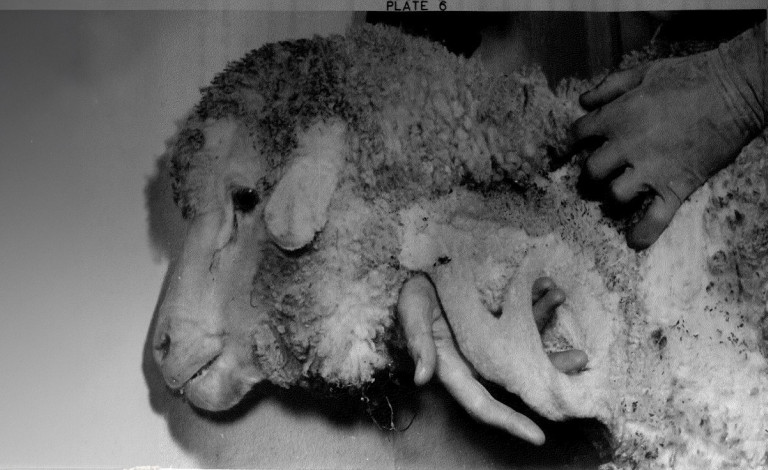Lincoln instrumental to Pest Free Banks Peninsula project
31 May 2022 | News
Alumni, students and staff from Lincoln University are all playing key roles in an ambitious project to eliminate pests from Banks Peninsula and Kaitōrete Spit by 2050.
Pest Free Banks Peninsula/Te Pātaka o Rākaihautū (PFBP) is a collaborative programme to protect biodiversity on the peninsula through the widespread eradication of animal pests.
Led by PFBP operations manager Tim Sjoberg and project manager Sarah Wilson (both Lincoln alumni), rangers laid the first traps at Kaitōrete in March, a story published at the time by The Press.
Over the next two years, they plan to cover the full length of Kaitōrete and part of the southeast corner of Banks Peninsula, before starting on the western side of Akaroa Harbour, moving the traps until they reach Lyttelton.
Sarah, who has a Master of Science in Resource Management, says her Lincoln studies taught her to take a holistic approach that draws on quantitative and qualitative science.
“This elimination project is complex and has many aspects, both in terms of community and social science, as well as ecology. Taking a holistic approach is the foundation for success.”
Part of the key to PFBP’s progress is working with research students and academics to be at the forefront of the latest technology for eliminating predators.
Sarah says it is amazing to have Lincoln University’s Department of Pest Management and Conservation “on the doorstep of the programme” and to enjoy “a great working relationship with staff and students”.
“We are always looking for opportunities for students to apply their studies to a real-world research project that makes a huge difference.”
Given the long-term nature of the programme, these opportunities will continue to arise throughout the decades.
Taught Master’s projects
One Lincoln student carrying out work for PFBP as part of his taught master’s degree, the Master of Pest Management (Vertebrates), is Luke Richards.
“I have mostly been involved with having a first look into areas of science that PFBP are interested in and identifying where more work should be done or providing an indication if a certain technique is worth investigating further,” he says.
Luke has completed one project for the programme and is working on another this semester. The first involved testing new techniques to distribute poison bait for possum eradication.
“I tested different devices to throw bait pellets into dense vegetation, which would otherwise have to be laid with bait stations. I investigated the accuracy and distance able to be achieved with each technique and provided recommendations on what worked best.”
The second project, currently in progress, aims to identify the accuracy of motolured game cameras for monitoring pests on Kaitōrete Spit.
“The pests are lured to the cameras using ZIP mayonnaise feeders,” Luke says. “I am now identifying the species in the photos and will then compare this data to the trap catch data in the area.”
Luke was attracted to the Master of Pest Management due to “the desire to focus on something that is outdoor-based and helps New Zealand’s native flora and fauna”.
“I worked as an urban planner after completing my undergraduate degree at Lincoln, but I soon realised that working in an office was not for me,” he says. “Now hopefully I will be able to go out and make a real difference to our natural environment.”
Research Master’s project
As part of her thesis, Master of Science (Conservation and Ecology) student Mel Barnett is researching the use of ZIP motolures with ground-based traps, to see if they will increase capture rates for hedgehogs, mustelids, possums and feral cats at Kaitōrete.
The motolures dispense a preset amount of fresh mayonnaise to lure pests to traps.
“We are hoping that a motorlure will be less threatening for a predator to want to check out, rather than entering a trap or foreign object,” Mel says. “Perhaps this will catch more shy or cautious individuals who would otherwise not interact with a trap.”
The motorlures are being set up as part of a network of 280 traps at the western end of Kaitōrete, then Mel will replicate her study further east as more traps are set.
“I am thoroughly enjoying the research element of my thesis and working with multiple Lincoln alumni,” she says. “It is hard to complain when spending beautiful sunny days at Kaitōrete, and getting the opportunity to gain experience alongside the knowledgeable PFBP team, and see how advances in research in technology can improve what they are doing.”
Mel has been associated with Lincoln for over a decade, first coming to the university in 2009. Years later, she wanted to take a new career direction and Lincoln’s fees-free scheme, introduced in 2020, encouraged her to take the leap.
“I’ve always enjoyed the outdoors and have been fortunate to be part of some amazing Department of Conservation volunteer opportunities over the last 10 years,” she says. “I already knew that I was interested in conservation, pest management and the outdoors, and my DOC volunteer experiences had been incredibly rewarding, so the next step was to turn that into a career.”
Mel says Lincoln has a great feel, with smaller classes that allow students to really get to know their lecturers and take advantage of the networking opportunities this can provide.
Surveillance on the peninsula’s ‘wild side’
Lincoln researchers have also begun surveillance on Banks Peninsula’s ‘wild side’ as the first step to eradicating possums from the area.
Associate Professor James Ross completed a study last year on the effectiveness of a new thermal camera that uses artificial intelligence to identify species. He says it is a “game changer for detecting animals in controlled areas”.
Learn more about his research in this article by MetroNews.
PHOTO: Master of Science (Conservation and Ecology) student Mel Barnett out in the field, carrying out her thesis research for the Pest Free Banks Peninsula project.


